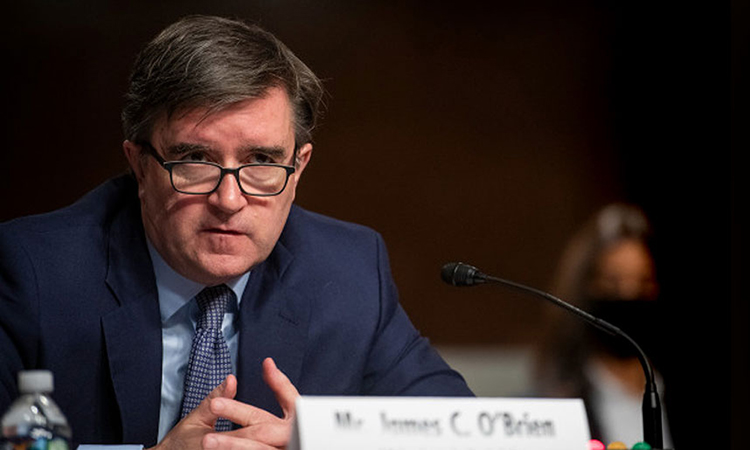The United States is supporting Armenia’s political leadership in its efforts to distance itself from Russia, according to a senior U.S. State Department official.
James O’Brien, the Assistant Secretary of State for Europe and Eurasia, commended Prime Minister Nikol Pashinyan’s “brave” foreign policy during a U.S. Senate subcommittee hearing on Tuesday.
In response to a query from Senate Foreign Relations Committee Chairman Ben Cardin about the U.S. stance on Azerbaijani and Russian threats to Armenia’s security, O’Brien stated: “Russia had guaranteed Armenia’s security after the 2020 war with Azerbaijan and long before that, but it failed. It turned its back as Azerbaijan reclaimed the territory around Nagorno-Karabakh, leading to a severe break.
“A significant portion of the Armenian population wants to move away from Russia. We are working to create the conditions for that to happen.”
O’Brien emphasized that this was the main purpose of U.S. Secretary of State Antony Blinken’s and European Commission President Ursula von der Leyen’s trilateral meeting with Pashinyan in Brussels in April. They established a “new platform to help Armenia reduce its dependence on Russia,” he explained.
“Armenia is almost entirely dependent on Russia for its energy and economy. We need to diversify that to enable the brave steps that Prime Minister Pashinyan is leading them on, which is a break with Russia,” O’Brien added.
He also praised Pashinyan’s efforts to negotiate a comprehensive peace deal with Azerbaijan. O’Brien reiterated that the deal is important to Washington as it would reduce Russian influence in the region by facilitating a new trade route from Central Asia to Turkey through Armenia.
O’Brien did not mention any potential U.S. military aid to Armenia or pressure on Azerbaijan. Cardin, who visited Armenia in early July, expressed disappointment that the international community has not shown much concern about Azerbaijan’s continued occupation of Armenian border areas seized after the 2020 war.
Pashinyan has committed to “diversifying” Armenia’s foreign and security policy in response to what he perceives as Russia’s failure to defend Armenia against Azerbaijani attacks. He and his political allies believe that closer security ties with the West will help Armenia better address its significant security challenges.
However, Armenian opposition leaders argue that this policy shift is reckless given the lack of Western security guarantees or substantial military aid. They also warn that it is alienating neighboring Iran, which they contend could militarily intervene to prevent Azerbaijan from creating an extraterritorial corridor to its Nakhichevan exclave through Armenia’s strategic Syunik province.
In a March 2024 article, two analysts from the Rand Corporation, a prominent American think tank, similarly cautioned Armenia against “unduly alienating” Russia and fully aligning with the West. They argued that Washington “cannot play the role of security guarantor” while Moscow “could still impose disastrous costs on Armenia” despite its involvement in Ukraine.




